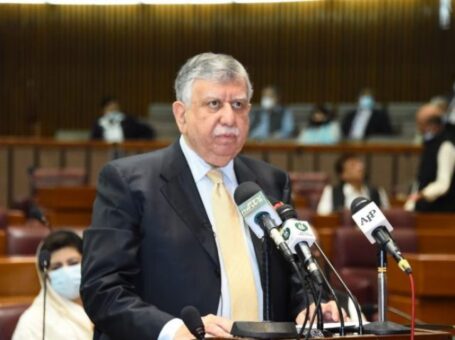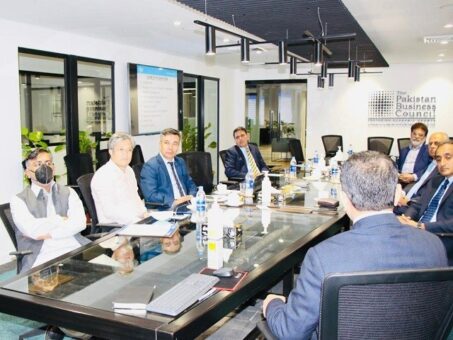KARACHI: The concept of separate withholding tax rates for filers and non-filers was introduced as a measure for increasing documentation of the economy. However, no efforts were made to increase the tax base.
Pakistan Business Council (PBC) in its proposals for budget 2021/2022 submitted to the Federal Board of Revenue (FBR), said that though large amounts are being collected from non-filers, no effort has been made to increase the tax base.
“The non-filers for the most part have built the cost of this government levy into pricing and passed it on to their customers.”
In order to broaden the tax base and to achieve increase in overall tax collection without burdening existing tax payers, the policy to increase tax on non-filers / unregistered persons should be implemented specifically in the following cases:
a) unregistered industrial / commercial entities (not having STRN) having bill amount in excess of Rs. 20,000 per month, extra sales tax should be increased from 5 percent to 20 percent
b) After collection of extra tax as referred above for a continuous period of 6 months, all these connections should be provisionally converted into NTN and STRNs and return filings from these connections should be enforced.
c) In case of provisional registration as above, utility companies be directed to issue show cause notices where annual billing amount exceeds Rs.2.4 million and directing provisionally registered persons to obtain permanent registration. In case of non-compliance, utility companies be directed to disconnect utility connections.
d) Moreover, in order to bring all commercial / industrial users in the tax net and to verify filer status, Electric distribution companies should provide one year to all such consumers to get their NTN registered with electricity distribution companies. In case of failure to provide NTN, electricity connection should be disconnected. Considering the fact that all industrial / commercial connections will be linked with NTN, the tax department will then be in a better position to assess the electricity consumed by commercial / industrial users and corroborate the same with amount of sales / production etc. reported in sales tax / income tax return.
e) In order to bring all commercial / industrial users in the tax net and to verify filer status, Electric distribution companies should provide one year to all such consumers to get their NTN registered with them. Thereafter, such commercial/industrial consumers without NTN should be charged advance income tax @ 30 percent (from existing 12 percent) on their utility bills. Those with NTN but non-filer status be charged at 20 percent WHT.
f) Residential consumers be made liable to provide NTN in case electricity bill amount exceeds Rs.1.2 million per year or levy advance income tax withholding of 20 percent.
g) All exemptions (like exemption on agricultural income) under the Income Tax Law should only be made available to filers so that exempt income is also reported and wealth is reconciled.
h) Withholding tax on International business class tickets under section 236L is same Rs. 16,000 for filer and non-filer, it should be increased to Rs. 50,000 for non-filers.
i) Withholding tax @ 5 percent or Rs. 20,000, whichever is higher, is applicable under section 236D on all functions organized by filers as well as non-filers. Rate of withholding be increased for non-filers to Rs. 100,000 as minimum and no WHT from filer
j) Function halls withholding tax on electric bills should be 30 percent which can be adjusted against tax liability by providing proof of tax deducted from their customers.
k) Withholding income tax on interest income u/s 151 is 15 percent for filer and 30 percent for non-filer. Rate should be increased to 50 percent for non-filers in case interest income is more than Rs.2,000,000/-
l) Annual private motor vehicle tax u/s 234 for non-filers is Rs. 9,000 for 1600cc-1999cc and Rs. 20,000 for 2000 cc and above. Rate for non-filers should be increased to Rs. 50,000 for 1600cc-1999cc and Rs. 200,000 for 2000 cc and above
m) Advance income tax is collected on sales of immovable property under section 236C, which is 1 percent for both filers and non-filers, should be increased for non-filers to 10 percent for properties of 900 square yards or more
n) Holding of land by non-filers should be made more expensive by asking those authorities collecting property tax (cantonment boards / societies / registrar) to collect adjustable advance income tax, from non-Filers, on behalf of the Federal Government as follows:
o) Rs. 500,000 per year for 800 yards or more but less than 1800 yards
p) Rs. 1 million per year for 1800 yards and above.




